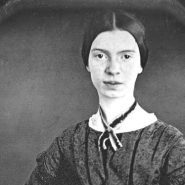William Wordsworth’s “My Heart Leaps Up” is a compact yet profoundly expressive lyric that captures the poet’s lifelong relationship with nature. Written in 1802, the poem celebrates the sense of awe and wonder that the natural world inspires, tracing this emotional resonance from childhood to adulthood.
Despite its brevity, the poem embodies the Romantic ideals of personal emotion, reverence for nature, and the spiritual continuity between youth and maturity. It is both a personal confession and a universal reflection on the constancy of joy.
The Poem (My Heart Leaps Up)
My heart leaps up when I behold
A rainbow in the sky:
So was it when my life began;
So is it now I am a man;
So be it when I shall grow old,
Or let me die!
The Child is father of the Man;
And I could wish my days to be
Bound each to each by natural piety.
The Leap of Joy
The poem opens with an immediate emotional reaction: “My heart leaps up when I behold / A rainbow in the sky.” Wordsworth begins in medias res, plunging the reader directly into the experience of sudden delight. This spontaneous joy reflects a central Romantic principle: the primacy of individual emotional response.
The rainbow is not just a visual phenomenon—it is a symbol of continuity, beauty, and the wonder of creation. The poet’s heart “leaps” because the sight resonates with a deep, enduring sense of pleasure and reverence. This emotional reaction is at once innocent, natural, and profound.
Continuity from Childhood to Adulthood
Wordsworth emphasizes the constancy of this experience over time: “So was it when my life began; / So is it now I am a man.” He draws a direct line from the awe of childhood to the reflective sensibilities of adulthood, suggesting that a genuine, unbroken relationship with nature sustains the spirit throughout life.
The assertion “The Child is father of the Man” crystallizes the poem’s philosophical insight. Childhood experiences, particularly those imbued with wonder, shape the moral and emotional life of adulthood. Wordsworth elevates the child’s perspective as a source of wisdom, arguing that the ability to feel joy and reverence from an early age defines the adult self.
Nature, Reverence, and “Natural Piety”
The final lines introduce the concept of “natural piety”: a life in which each day is connected, respectful, and attuned to the rhythms of the natural world. Wordsworth’s wish that his days be “Bound each to each by natural piety” reflects a desire for continuity, harmony, and ethical mindfulness inspired by nature.
Here, piety is not religious in the traditional sense; it is a moral and emotional responsiveness to life itself, cultivated through observation, reverence, and gratitude. Nature becomes a teacher and guide, offering lessons in constancy, beauty, and moral alignment.
Themes of “My Heart Leaps Up”
The poem engages with several interrelated themes:
- The Joy of Nature: Simple experiences—like seeing a rainbow—can evoke profound emotional responses.
- Continuity Across Time: Childhood experiences shape adult consciousness; early awe informs lifelong perspective.
- Harmony and Piety: Reverence for nature fosters moral and spiritual alignment, connecting days and experiences into a coherent whole.
- The Permanence of Emotion: True joy and wonder are not fleeting; they endure when cultivated and recognized.
Tone and Mood
The tone of the poem is joyful, reflective, and reverent. Wordsworth blends immediacy with meditation: the first lines capture the spontaneity of delight, while the latter lines reveal philosophical depth.
The mood is uplifting, evoking a sense of wonder and ethical reflection. The poem’s rhythm and simplicity mirror its message: just as nature is constant and harmonious, the language is clear, measured, and emotionally resonant.
Conclusion: Joy in Continuity
My Heart Leaps Up celebrates the enduring connection between humanity and the natural world. Wordsworth demonstrates how early experiences of joy and reverence shape character, providing continuity across life’s stages. The poem reminds readers that the smallest encounters with beauty — like a rainbow — can inspire awe, moral reflection, and a sense of spiritual balance.
In its brevity, the poem captures the essence of Romanticism: a personal response to nature that resonates universally, bridging the gap between childhood innocence and adult wisdom.
